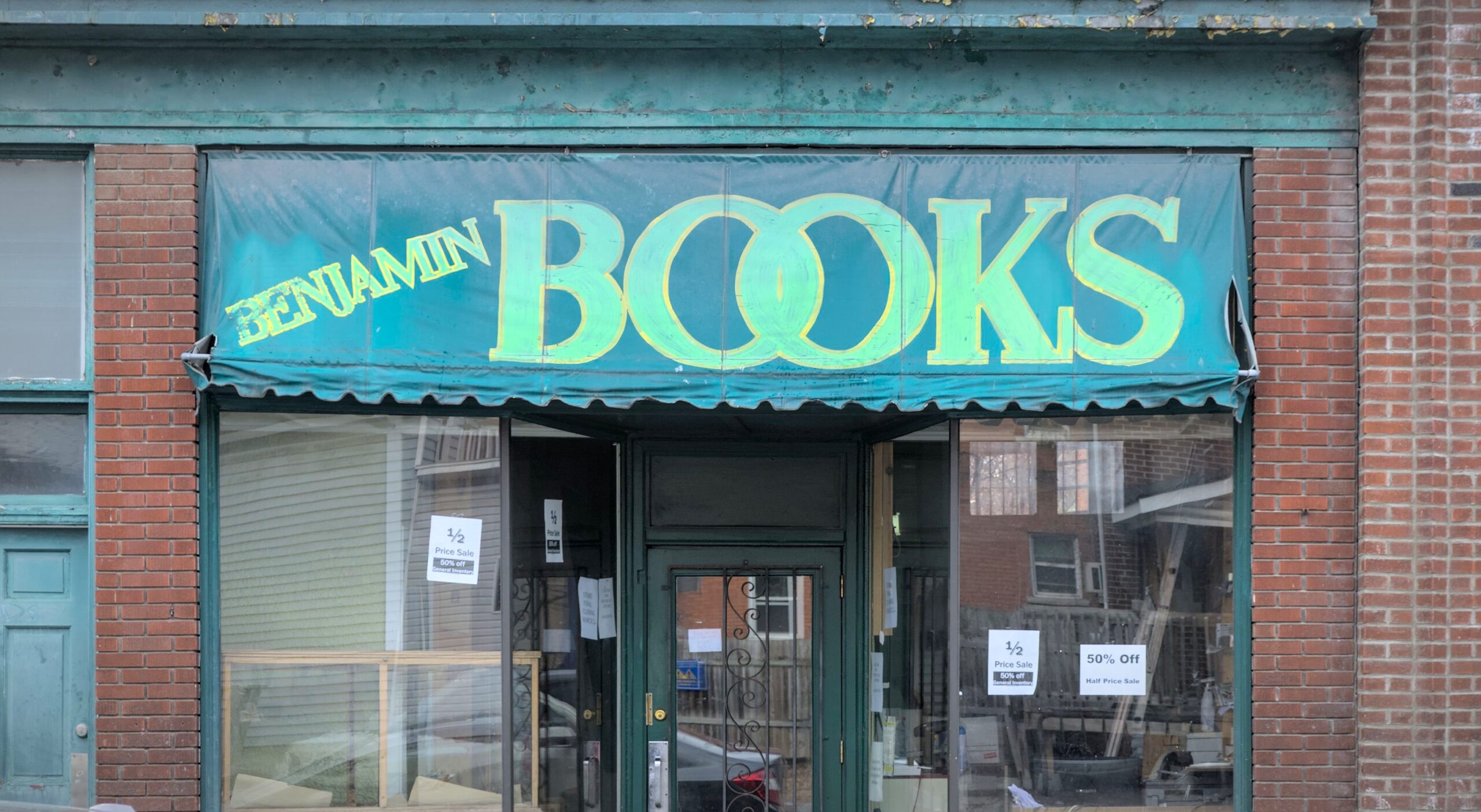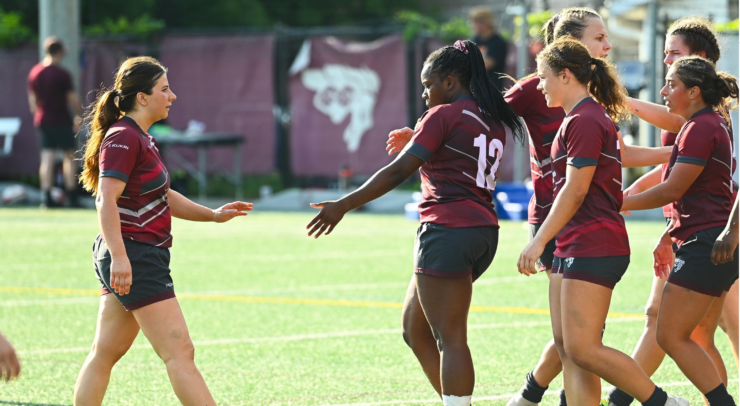Say your final goodbyes to the little shop on the corner. Benjamin Books closes their doors after 35 years in business
The University of Ottawa campus and surrounding area have changed since 2022. For U of O first-years, our campus feels unfamiliar and new. Studying away from home is a big deal. Whether you drive into campus from Orléans each day or have travelled across an ocean to be here, having a comfortable and familiar learning environment can influence the start of your fall term. For returning students, however, our campus may also look slightly unfamiliar and new.
Local businesses that have collaborated with the U of O or its professors have closed their doors and have fundamentally changed the atmosphere of the surrounding Sandy Hill area. Streets close to our school, such as Osgoode St. and Laurier Ave. E, have been affected by these changes.
Historical examples of this phenomenon include the changes that have occurred in Byward Market. Staggering numbers of businesses of all varieties have been dissipating for many reasons, ranging from low profits and rising rent costs to owner retirement. Restaurants, jewellery stores, bookstores, and butchers, all permanently closing or changing their business models to adapt to a more digitized market. The one that may hit closest to home for U of O students is, without much doubt, Benjamin Books.
Losing a store like Benjamin Books, one so closely knitted into the fabric of the university, feels like the loss of a limb. For more than three decades, the shop supplied students like me with the reading materials they needed for their studying. Many professors in the English department, my department, asked their students to get their books from this store in an effort to support this local business rather than from a digital market or the campus store.
I remember as a first-year student nervously entering the store with a long list of texts by many diverse authors. I was greeted nicely, and the owner handed me the books I needed in a pre-organized stack. The store itself was beautiful and brought some colour to the Osgoode St. strip; its exterior was emerald green and old-fashioned and the sign above the door was shabby and said, “Benjamin” in a little font and “Books” in a huge font that covered a large portion of the sign.

In the windows, books were piled high, with some nicer-looking editions or more well-known titles leaning against the piles. Inside, if you could guess, even more books. The store walls were lined with shelves going up to the roof at least 20 feet, all blanketed with texts. I can only imagine the shop must have been so worn out by the weight of the heavy books inside because no matter where you stepped, you could hear the wear on those creaking floors.
Benjamin Books was that really good kind of old. The kind that makes grandparents and cathedrals feel so important. The kind that gave you ginger tea when you were sick and caramels when you weren’t. Before it closed, I made a tradition of stopping in each week to grab a two-dollar novella or book of poems, and they always comforted me greatly no matter my mood. If I arrived in a blizzard, the store warmed me; if I arrived in a fog, the books cleared my head. Everything about that place was perfect in my eyes.
To top it off, the two men who ran the store matched it nicely; they were scruffy, on the older side, and were overly offensively polite. Finally, and most sadly, their prices may never be seen in any bookstore again. Maybe to a passerby who never went inside, all this doesn’t seem that special. To some students, I’m sure it was just a gap between 3 Brothers Shawarma and Circle K. To other students, though, it was more than just an old store that reeked of pulp.
With Benjamin Books being gone for almost seven months now, student patrons have turned to the campus store and the digital versions of their texts as best they can. Benjamin Books was an institution of the University of Ottawa’s history, and students will feel its absence for months to come. The owner, Mordecai Bubis, made known his desire to keep the store present on campus in some way. In an interview from late last year, Bubis stated, “I’m not yet aggressively looking for a buyer for the Osgoode store collection. I’d really prefer that [the U of O] take over this space and keep the historical connection going.”
This was a wonderful idea that unfortunately came and went as Mr. Bubis entered semi-retirement and decided to switch his business to a primarily online version of what it once was. I think that the situation speaks to something important regarding the ways that our university is slowly changing. For one, this underscores the undeniable trend of digitization in university settings. As more local businesses transition out of school spaces, students who prefer to keep the traditional analogue style of studying alive through the support of stores like this are left out to dry — a tradition that Bubis states in the same interview is “fundamental to academia.”
So now we’re left wondering what’s next for the students. A more pessimistic Fulcrum contributor might believe that this is the end—that with analogue studying becoming more difficult to engage in, generative AI will take over school spaces and plagiarism will continue to run rampant. Thinking of myself as a more optimistic Fulcrum contributor, however, I will say only this: the University of Ottawa is experiencing a dramatic change, and it will be up to the students of our school, the new and old, those in STEM and those in the arts, to decide how they want that change to play out.






